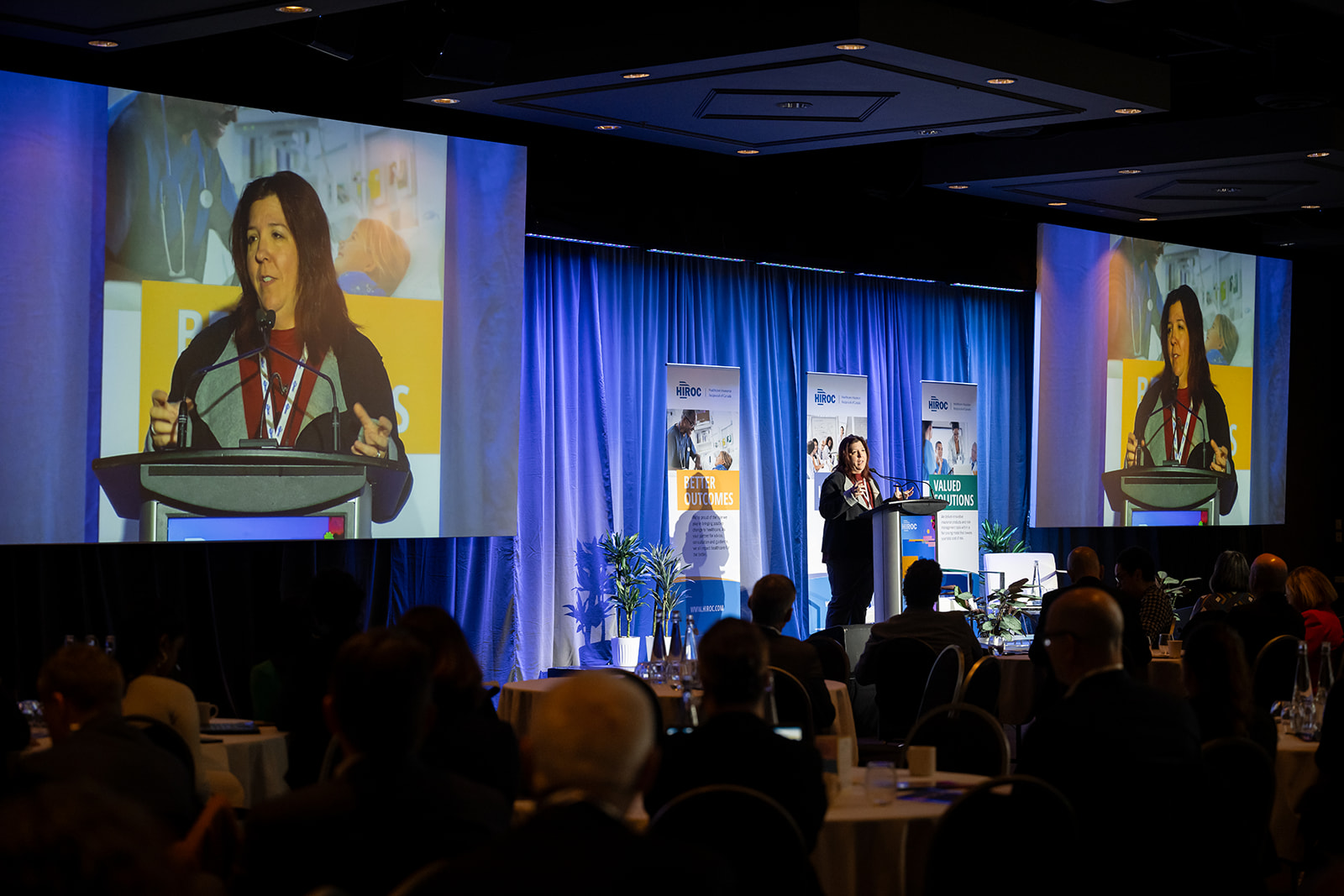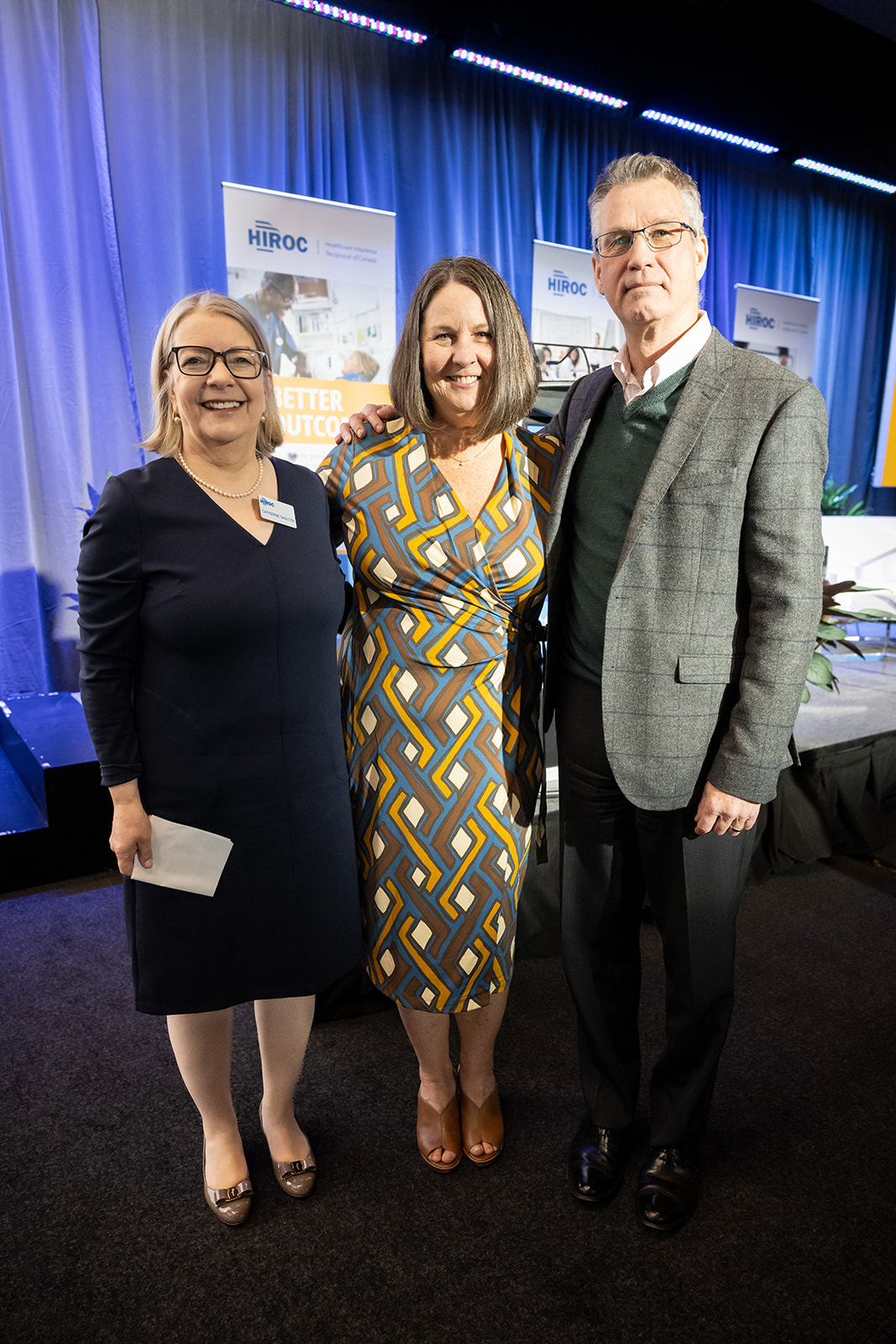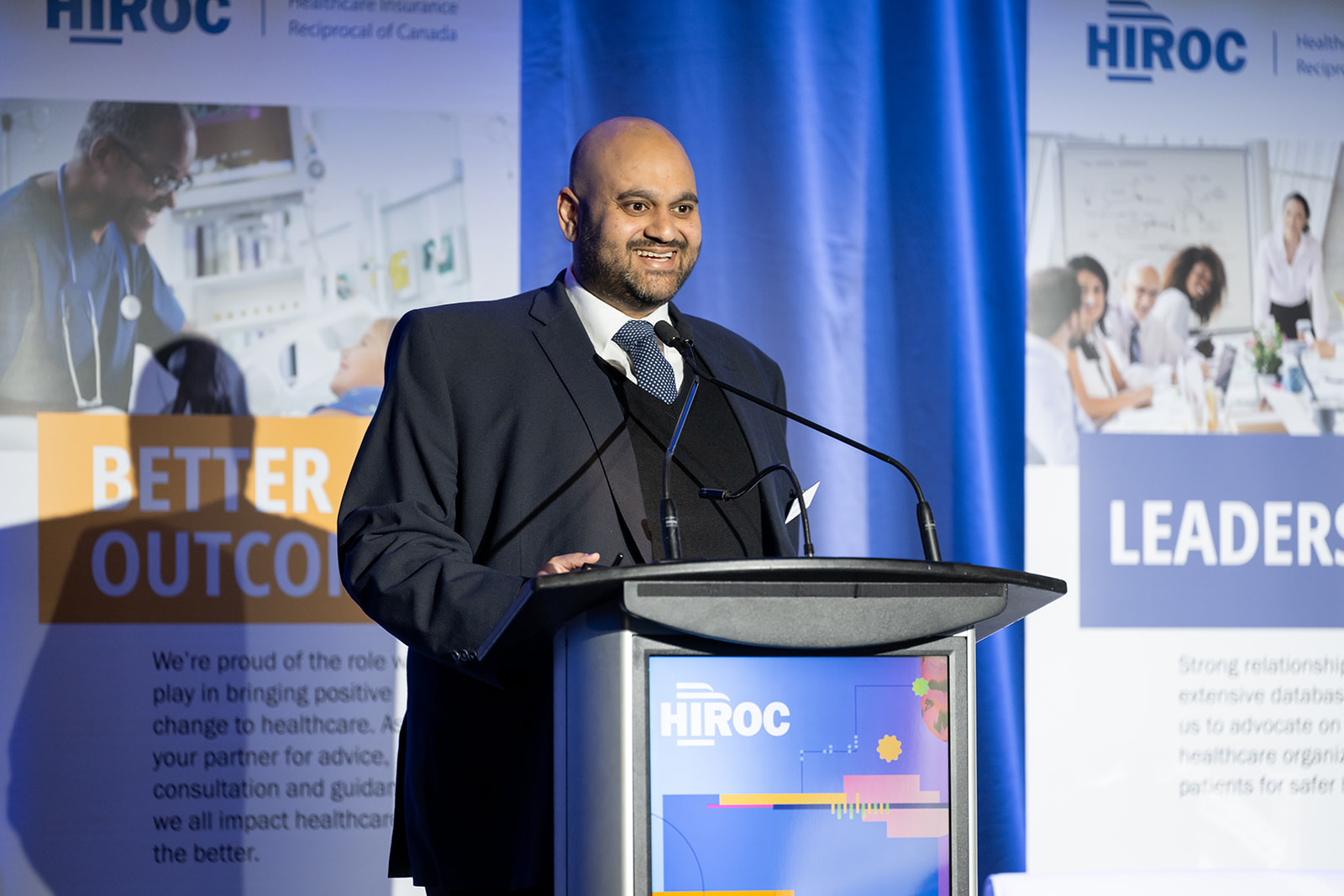HIROC Conference 2024: Turning Tragedy into Advocacy, Becoming a Better Leader, & Reinforcing Resiliency

“I speak about the power of collaboration between healthcare providers and patients, the value in medication error reporting, patient engagement, and developing a mindset of safety,” said Melissa Sheldrick, Patient Advocate, Patients for Patient Safety Canada.
Melissa’s talk kicked off a full day of learning at the HIROC Annual Conference this past April. Addressing the capacity crowd, made up of healthcare professionals from across the healthcare system, Melissa’s story captivated the audience and set the tone for the remainder of the day—that we’re all here to partner to create the safest healthcare system.
Turning Tragedy into Advocacy
In 2016, Sheldrick lost her 8-year-old son, Andrew, to a medication error. In the wake of this tragedy, she learned there was a lack of accountability and no reporting programs for such incidents. She spoke about how she began advocating for a provincial quality improvement program in Ontario where pharmacies are required to anonymously report harm-causing incidents or near-misses for educational purposes. Thanks to her advocacy, the Ministry of Health asked Sheldrick to join a task force in 2017 to create a program like this, and she began working with Patients for Patient Safety Canada, a volunteer program for people with patient experience of harm to themselves or loved ones.
The power of collaboration to improve patient safety is demonstrated by Sheldrick’s story. When she began her advocacy for a pharmacy reporting program in 2017, only Nova Scotia had a program like that. In 2018, the Ontario College of Pharmacists announced and began implementation of the Assurance and Improvement in Medication Safety (AIMS) program, a mandatory standardized quality improvement program for community pharmacists. Today, there are six provinces with these programs, with one more coming this summer and two more working hard to develop theirs.

Becoming a Better Leader
It’s become somewhat of a tradition now that HIROC hosts a leadership fireside chat at many of its events. This is, in part, directly connected to the feedback we hear after events—our Subscribers value hearing about leadership lessons.
Up next was a trio of veterans in the healthcare sector, featuring David O'Toole, President & CEO, CIHI; Elizabeth Beader, HIROC Board Chair; and Catherine Gaulton, CEO, HIROC.

O'Toole spoke about how the healthcare system has changed over the past decade. Ten years ago, CIHI began publicly reporting quality indicators, and the pandemic boosted interest in these statistics (e.g., ICU capacity) among the average person, making improving data literacy in the general population increasingly crucial. He also discussed the healthcare sector’s responsibility to the community when mis- and disinformation are so prevalent.
CIHI is net neutral, so it is their practice to provide healthcare data to anyone asking for it. This ensures nothing is censored to anyone; however, they realized that not all data is neutral. “Data can be weaponized in this period of time,” O'Toole said.
When offering advice to healthcare leaders, including board members, Gaulton encouraged leaders to “remember what fantastic decisions we made during the pandemic and how to incorporate that to go forward.” Beader recommended HIROC’s 21 Questions resource for boards as a great place to start to ensure responsibilities are met. Identify the gaps in your organization to bring on the right skillset at the right time while bringing together diverse thoughts and backgrounds, and maintain and foster transparent relationships with staff, including the frontline. “Look at the talent in the room and develop that talent to the fullest scope,” she added. Finally, O'Toole added that leaders need to be permissive of failure, be impatient for the right change, and avoid a constraints-based approach to delivering healthcare.
Reinforcing Resiliency
Do you know what the most common and costly property claim is? Water damage—about 60% of losses in the last ten years for both frequency and cost are due to water damage. So, it is critical to ensure your site is protected against it. And HIROC continues to innovate through our Brokerage team, who can provide advice, guidance, and support on all things property, including access to additional insurance options like property coverage.
To help you protect your sites, HIROC’s Shahbaz Haque, VP, Insurance Services, explained the water damage protection process: prevent, detect, react, recover.
- Prevent: identify critical room exposures (e.g., MRI, etc.), regularly exercise water control valves (these can save you or hurt you because if not used regularly they seize), check and clear drains (especially after storms), regularly test sump pumps, and check for corrosion (e.g., on HVAC, plumbing, etc.)
- Detect: how do you find issues and do the right people know
- React: a delayed reaction can increase costs
- Recover: water damage claims are nuisances and healthcare organizations need to be back up and running as soon as possible
Tips for detecting, reacting, and recovering include
- Install leak detection and other mitigation products in critical areas
- Create a valve list with maps and clear labels
- Designate and establish roles for personnel on all shifts
- Psychological safety can be an issue with staff wondering, “Am I allowed to turn this off?”
- Issues can get worse if the right individuals are not around, so ensure everyone, including contractors, knows the plan
- Have restoration contractors and abatement equipment available
- Complete regular training and mock drills
If you haven’t already, your next steps should be to connect with HIROC, develop a detailed emergency response plan at all your facilities, develop a preventative maintenance program, and install leak detection and other mitigation products in critical areas. Check out our Resources for more information, and learn more about our property insurance program.

A Day of Collaboration, Knowledge-sharing, Storytelling, and Networking to Improve Patient Safety
Thank you to all the fantastic speakers, attendees, and everyone else who joined us at the conference and made it possible! It was wonderful to see so many of you in person for a day of learning. Together, we can turn the corner on patient safety through knowledge-sharing and quality improvements to help create the safest healthcare system. Stay tuned for our next article from the conference!
This article is part of a 3-part series; check out the other two Conference recaps:
HIROC Conference 2024: Stories from HIROC Subscriber Partnerships
HIROC Conference 2024: Enabling Safe AI Adoption In Healthcare
By Gillian Brandon-Hart, Communications and Marketing Specialist, HIROC
